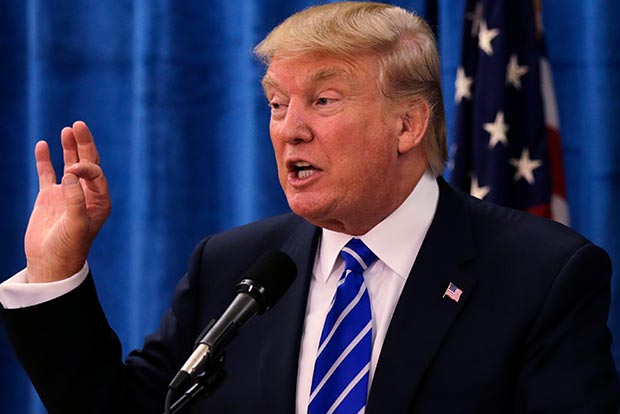Begin typing your search...
Tactical Failure: How Democrats faltered on the GOP
Probably nothing could have moved enough Republican senators to vote to convict former President Donald Trump in his second impeachment trial. But the way the House chose to frame the article of impeachment made the prospect less likely.

Chennai
If the purpose of the proceeding was to produce a conviction and disqualification from future office, as opposed to mere political theater, the House should have crafted a broader and less legalistic set of charges. The sole article of impeachment was for “incitement of insurrection.” It focused on the afternoon of Jan. 6, when then-President Trump addressed an initially peaceful crowd of supporters and egged them on to go to the Capitol and to “fight like hell” against the recognition of an Electoral College victory for his opponent Joe Biden.
Presumably, the drafters of the House impeachment resolution chose to frame their charge as incitement because this is an actual crime. The first impeachment of Trump was criticised (wrongly, in my view) for failing to allege a crime. But it is not necessary for an impeachment to be based on criminal conduct. As Alexander Hamilton explained in The Federalist No. 65, impeachment proceedings “can never be tied down by such strict rules” as “in the delineation of the offense by the prosecutors” in criminal trials. Rather, he said, the target of impeachment proceedings is “the abuse or violation of some public trust.”
By charging Trump with incitement, the House unnecessarily shouldered the burden of proving the elements of that crime. This is not to say that senators may vote to convict only if those elements are proved, but that the terms of the impeachment article invited the defense to respond in the same legalistic terms presented by the House impeachment managers. They tried to broaden the focus during the trial, though not successfully. One element of the crime of incitement is the intent to induce imminent violence.
The evidence shows that Trump was reckless and that violence was a foreseeable consequence of his incendiary speech, but a senator might reasonably conclude that it falls short of proving that he wanted his followers to assault members of Congress or to vandalise the Capitol. Moreover, the terms of the impeachment article opened the door for Trump’s defense team to play videos in which various Democrats said things that can be construed to encourage violence — a comparison that should be irrelevant but certainly muddied the waters.
The House should have crafted its impeachment resolution to avoid a legalistic focus on the former president’s intent. This could have been done by broadening the impeachment article. The charges should have encompassed Trump’s use of the mob and other tactics to intimidate government officials to void the election results, and his dereliction of duty by failing to try to end the violence in the hours after he returned to the White House from the demonstration at the Ellipse.
Whether or not Trump wanted his followers to commit violence, he wanted them to intimidate Vice President Mike Pence and members of Congress. That was the whole point of their “walk,” as Trump put it, to the Capitol. The mob was not sent to persuade with reasoning or evidence. Moreover, Trump’s actions on Jan. 6 were of a piece with attempts — nonviolent but no less wrongful — to intimidate other officials, such as Georgia’s secretary of state, to use their powers to thwart the election results. The Trump campaign had every opportunity to substantiate its claims of massive fraud in court and failed miserably to do so.
It would be foolish to think that the vote on impeachment would come out differently if the charge had been differently framed. But if the House was going to impeach, it should have framed the case to make it as difficult as possible for the Senate to acquit. It is far from clear that Trump incited the violence in a technical legal sense, but it is abundantly clear that he sought to intimidate members of Congress and other officials to block Biden’s election, and that he failed in his duty to do what he could to end the violence once it started. Those would be ample grounds for conviction, quite apart from whether Trump committed the crime of incitement.
McConnell is a former federal appeals court judge. NYT©2020
The New York Times
Visit news.dtnext.in to explore our interactive epaper!
Download the DT Next app for more exciting features!
Click here for iOS
Click here for Android
Next Story



